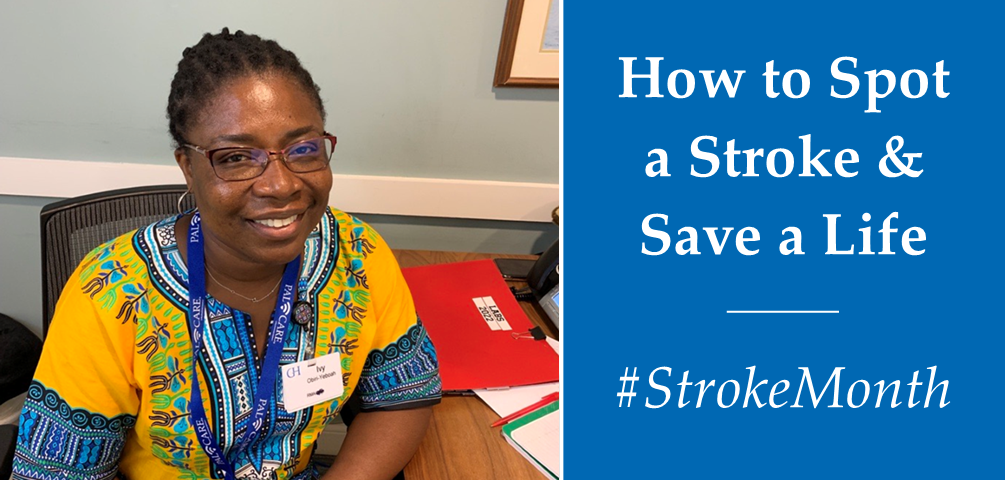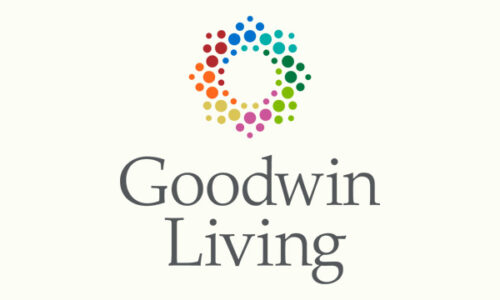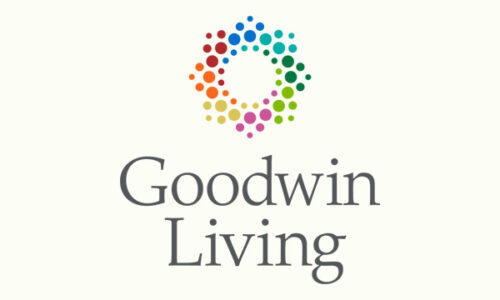May 23, 2022
How to Spot a Stroke and Save a Life
Goodwin Living Nurse Takes Quick Action During Emergency
By Timaeus Reed
National Stroke Awareness Month is the time to educate others about the health risks of “brain attacks”. Since nearly 800,000 people a year have a stroke, we all must learn what a stroke is, how we can recognize them and how we help people when they occur. Gaining that knowledge can mean the difference between life and death, even when you least expect it. Goodwin House Alexandria (GHA) Registered Medical Assistant and CNA Ivy Obiri-Yeboah knows this firsthand.
Ivy spends part of her workday seeing resident patients in one of our clinics. Recently, when a resident and his wife came to make a routine appointment, something immediately stood out to Ivy. She recognized the resident’s slurred speech as signs of a stroke and helped get the resident transferred to a hospital right away. When he arrived at the hospital, the ER staff confirmed the resident had a stroke and treated him appropriately. Thanks to Ivy’s training and initiative, she helped this resident avoid lasting brain damage, long-term disability, or even death.
We all can take heroic action like Ivy if we know to take the proper precautions. That’s why we asked Ivy more about her experience at Goodwin Living, her medical training and what advice she has for anyone who wants to prepare to handle unexpected emergencies.
What is your role at Goodwin Living? What sort of work does your department do?
I have worked at GHA as a Registered Medication Technician since March 26, 2019. I work in the clinic and Assisted Living unit during all shifts. I am responsible for administering all kinds of daily medications to residents who need them. I monitor and report any changes or reactions from the residents in my care.
Nursing staff members are generally trained and equipped to check vital signs and prepare lab slips. I help coordinate residents who have doctor’s appointments. At the same time, I work as a receptionist for the clinic, receiving and directing calls to the specific exam rooms in the clinic and other tasks I can proactively handle to make life easier for other nursing team members. I respond and assist immediately to all resident calls for service that come through the internal clinic phone.
What made you want to work in nursing?
My late mother was my mentor. She was a retired nurse with the rank of Deputy Director of Nursing (DDNS) at Pantang Hospital in Ghana. Seeing the satisfaction she felt every day by helping people inspired my interest in the nursing field. From the time I was a child, I knew that nursing was something I wanted to do with my life.
In the nursing profession, we deal with many aspects of patient care, and I enjoy the variety in the routine. Working with patients and their families, helping them through what can often be difficult situations, is extremely satisfying to me.
What is the best part of your nursing career at Goodwin Living?
I chose nursing as a career because I love learning and experiencing new things. I am constantly challenging myself to keep current on medical trends and training so that I can provide the best care to residents. I learn something new every day from my nursing colleagues and patients. That inspires me to explore a deeper knowledge of the techniques and procedures I use. I can use these skills to keep putting smiles on residents’ faces and making a difference in their lives. It’s also nice to have a flexible schedule that allows me to handle all my personal affairs while I earn a living.
Where did you learn to spot the signs of a stroke?
My mother gave me insight into the signs and symptoms of a stroke at an early age. During my classes in nursing school, I gained in-depth knowledge about strokes from the lectures and curriculum. My clinicals and frequent in-service training helped as well. I’ve read a lot on the topic over the years.
What is a stroke? What causes it? What are the signs of a stroke?
A stroke is sometimes called a “brain attack”, but medically we call it a Cerebrovascular Accident (CVA). It occurs when something blocks blood supply to a part of the brain or when a blood vessel in the brain explodes. In some cases, a stroke can cause parts of the brain to become permanently damaged, which can lead to death.
Signs and symptoms a person must look for:
- Sudden numbness or weakness (such as drooping) at one side of the face, arm or leg, especially on one side of the body
- Slurring of speech
- Loss of balance when walking (gait)
- Loss of vision
- Severe headaches
The increased risk and leading causes of stroke are high blood pressure, diabetes and heart disease. Other causes include tobacco, some kinds of medications and aging.
How do you help someone who is having a stroke?
First and foremost, you should call 911 and tell the dispatcher that you suspect a person is having a stroke. While you wait for help to arrive, note the time you first saw symptoms, monitor the status of those symptoms and stay near the person you’re helping. If their condition worsens, you may need to perform CPR, but it’s essential to stay positive. Encourage the person to lie down or sit. Please do not allow them to have any food or drink, or they may choke and suffocate. Carefully and calmly explain the situation that they’re in. They must keep still, as they may be at risk of falling and injuring themselves. I repeat: as hard as it might be, stay calm for the sake of the person you’re helping, even on the phone call with 911.
Tell us about your mission moment. You helped someone who didn’t realize they were having a stroke. What was that like?
I was on duty at the clinic one morning when a lovely couple came in at my usual routine. A woman was trying to make an appointment for her husband to see the doctor. She told me all of her husband’s symptoms that she noticed during the night before that lasted through the morning. I turned to the man, asked about his health and observed that the left side of his arm was drifting down, and his face was also drooping to the left side. That’s when my suspicions began, but I was not certain he was having a stroke until I heard him slurring his speech. That prompted me to handle it as an emergency.
Immediately, I offered them a chair to sit and reported it to my supervisor. She made a few assessments in addition to all that I told her and called 911 immediately. I instantly checked his vital signs, which had already become alarming before the ambulance came. He was taken to the hospital, diagnosed with a CVA and received the proper treatment.
It all happened in a few moments for me. I’m glad the resident got the care he needed, and I’m thankful that I can be there the next time someone might need help.
Mission-Minded Staff Make Goodwin Living Special
We have all wondered what we would do during a health emergency. Many of us live with difficult health situations on a regular basis. At Goodwin Living, we believe life becomes a bit easier to manage with people like Ivy in the world – people who have a calling to make themselves more accessible and capable of doing good for others. Any of us can make a positive difference for people around us if we educate ourselves and take a chance on doing what’s right.
We’re inspired by Ivy and the rest of the Goodwin Living nursing team members to continue putting our best foot forward. If you are interested in joining a team of passionate, purposeful professionals like Ivy, we invite you to browse our open positions. We prepare our nurses for the incredible work they do, but we also welcome their unique talents and perspectives to help us achieve our mission. Together, we can all do our part to make the world a safer, healthier place!
________________________________________
Timaeus Reed is a Marketing and Communications Specialist at GHI. He plans, writes and designs for internal and external campaigns that support all areas of the organization. He relocated to D.C. to join the team in the summer of 2021. When he isn’t getting lost in traffic, Timaeus loves listening to live Go-Go music and stand-up comedy.





